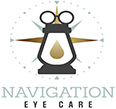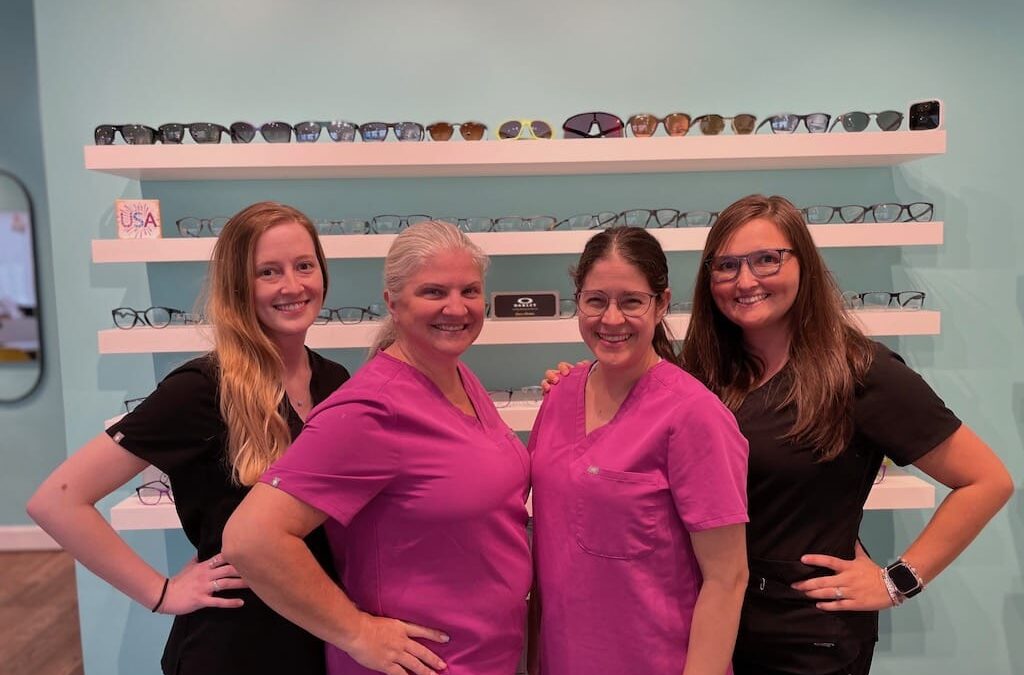Vision therapy is designed to improve a patient’s visual abilities and efficiency under the direct care of an Optometrist Chesapeake VA that specializes in pediatrics. It involves a series of exercises and techniques tailored to each patient’s unique visual needs and challenges. Dr. Teten, an Optometrist Chesapeake VA that specializes in pediatrics and vision therapy, will discuss vision therapy, what conditions are typically treated by vision therapy, how vision therapy works, whether there are age limits to vision therapy, and who can benefit from vision therapy.
What is Vision Therapy?
Vision therapy as performed by an Optometrist Chesapeake VA is a non-surgical and non-invasive treatment designed to enhance visual skills and correct vision problems. Vision therapy improves the skill of vision by training the eyes and brain to work together more effectively. Vision therapy targets specific visual skills and abilities through various exercises and techniques, such as eye tracking, eye teaming, and visual processing. These exercises improve the brain’s ability to process visual information and create more efficient and accurate visual processing.
For example, a patient with convergence insufficiency may have difficulty with eye teaming, leading to eyestrain and difficulty reading. Vision therapy for this patient would include exercises that strengthen the muscles responsible for eye teaming and improve the brain’s ability to coordinate the eyes. Over time, the patient’s visual skills and abilities will improve, reducing eyestrain and improving reading ability.
Similarly, a patient with amblyopia (lazy eye) may have reduced vision in one eye due to a lack of use. Vision therapy for this patient would include exercises that stimulate and strengthen the weaker eye, helping it to work more effectively with the stronger eye. Over time, the patient’s visual abilities in the weaker eye will improve, leading to improved overall visual performance.
What Conditions are Normally Treated by Vision Therapy?
Vision therapy is used to treat a wide range of vision problems, including amblyopia (lazy eye), strabismus (eye turn), convergence insufficiency (difficulty with eye teaming), and visual processing disorders. In addition, vision therapy may also be used to improve sports vision, visual skills for reading, and other visual skills that can impact academic performance.
How Does Vision Therapy Work?
Vision therapy works by helping the brain and eyes work more effectively together. Patients can improve their visual skills and abilities through various exercises and techniques, such as eye tracking, eye teaming, and visual perception. The therapy is tailored to each patient’s specific visual needs, and the exercises are designed to improve the brain’s ability to process visual information. Vision therapy aims to create more efficient and accurate visual processing, leading to improved visual performance.
Are There Any Age Limits to Vision Therapy?
Vision therapy can be effective for patients of all ages, from young children to adults. However, the earlier the therapy is started, the better the results may be. In the children Dr. Teten has worked with, she has seen significant improvements in the child’s behavior and learning at school. So much so that the parents have been brought to tears at the changes they have seen in their child; that being said, adults can also benefit from vision therapy and may see significant improvements in their visual skills and abilities.
Can Vision Therapy Influence Academic Performance?
Vision therapy can help improve academic performance by targeting specific visual skills and abilities essential for reading, writing, and other academic tasks. For example, if a child has difficulty with eye teaming, they may have difficulty reading and may experience Optometrist Chesapeake VA eyestrain or headaches while reading. Vision therapy can improve their ability to coordinate their eyes and reduce these symptoms, making it easier and more comfortable for them to read.
In addition, vision therapy can also improve visual processing speed, visual memory, and visual attention, which are all essential skills for academic performance. If a child needs help with any of these skills, they may need help with tasks such as copying from the board, completing timed tests, or retaining the information they have read. Vision therapy can improve these skills and make it easier for the child to complete academic tasks accurately and efficiently.
Furthermore, vision therapy can also help students with sports vision difficulties. Sports vision is vital for many sports, such as basketball, soccer, and tennis, as it allows athletes to track the ball or other players quickly and accurately. By improving sports vision, students can perform better in sports, which can also positively impact their overall academic performance by increasing their confidence and reducing stress.
Who Can Benefit from Vision Therapy?
Anyone with a vision problem or wanting to improve their visual skills and abilities can benefit from vision therapy. Vision therapy can benefit children with learning-related vision problems, adults with visual difficulties caused by traumatic brain injury or stroke, and athletes looking to improve their sports vision. In addition, anyone who experiences eye strain or fatigue when working on a computer or reading for extended periods may benefit from vision therapy. Additionally, the following list provides some possible everyday events that could be overlooked but indicate the need for vision therapy:
- Reading below grade level
- Confusing similar words
- Poor judgment of depth
- Homework meltdown sessions in the evening
- Difficulty maintaining attention
- Favoring vision in one eye over the other
- Poor posture when reading and or writing
- Poor hand-eye coordination
Vision therapy is a non-surgical and non-invasive treatment that improves visual skills and abilities. It treats many vision problems and can benefit patients of all ages. Patients can improve their academic performance, sports performance, and overall quality of life by improving visual processing. If you have a vision problem or are interested in improving your visual skills, talk to your Optometrist Chesapeake VA at Navigation Eye Care to see if vision therapy may be right for you.
If you have a child with one or more of these eye conditions, your child may benefit from vision therapy. Have your child evaluated by a qualified Optometrist Chesapeake VA that specializes in pediatrics and vision therapy. Dr. Teten encourages parents to bring their children in for regular eye and developmental vision exams to ensure their eyes are healthy and their vision is properly developing. Call the Navigation Eye Care team at 757-529-6889 or schedule an appointment online. We are fully equipped and prepared to care for you and your family.

